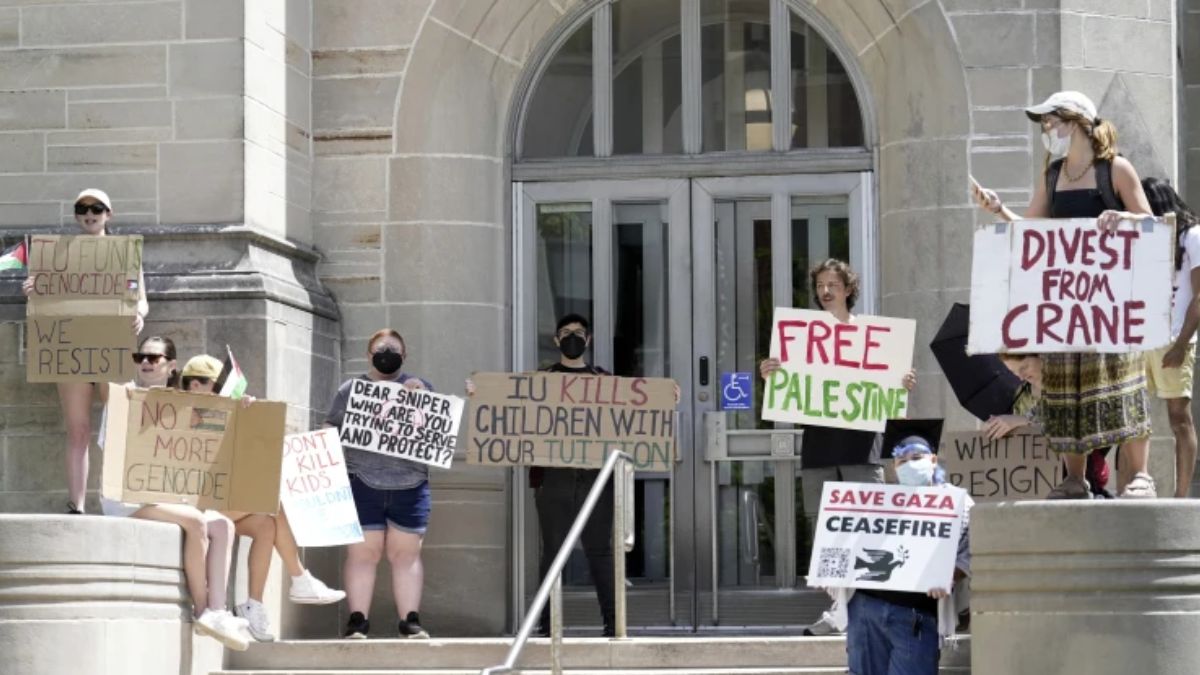In recent weeks, campuses across the United States have become hotbeds of activism. Pro-Palestinian and anti-war protests have escalated in several universities amid Israel’s ongoing bombing of Gaza.
The demonstrations, which have now touched nearly 140 institutions in 45 states plus Washington DC, show potential to disrupt graduation ceremonies.
We explain the impact the protests are expected to have on commencement ceremonies. We also highlight how a constructive approach towards the protesters demands has helped some universities prepare for a much smoother ceremony.
Large protests ahead of graduation ceremonies
According to the BBC, four universities affected by the protests are scheduled to hold their graduation ceremonies over the coming weekend. Many others, including Columbia University, have scheduled ceremonies in May and June.
The protests, marked by tent encampments and vocal disruptions, have brought a significant security concern for universities. These institutions are now implementing rigorous security measures reminiscent of those used during large-scale sports events.
Universities bolster their security arrangements
Indiana University and the University of Michigan serve as prime examples of campuses on high alert, with both schools enhancing their security protocols to counter potential disruptions during their commencement ceremonies.
At Indiana University, where the campus has seen the police clear protester encampments twice already, the administration has called for increased vigilance. The IU Divest and Palestine Solidarity Committee has been vocal, encouraging graduates to don keffiyehs—a symbol of Palestinian nationalism—alongside their caps and gowns and walk out during commencement speeches to signify their solidarity.
Impact Shorts
More ShortsThe University of Michigan, expecting over 8,000 graduates and 63,000 spectators, is set to host its ceremonies in the sprawling Michigan Stadium, also known as “The Big House.” Here, attendees will undergo security screenings, and any disruptive protesters will be subject to removal. This follows an incident in March where a university event was abruptly ended due to protesters drowning out speakers, which has since led to the drafting of a policy that could result in severe penalties for disruptors, including expulsion.
Further east, Northeastern University in Boston, which faced nearly 100 arrests after recent protests, is taking no chances. Their commencement will be held at Fenway Park, allowing for better crowd control and security monitoring. The historic ballpark will implement stringent entry checks, including metal detectors, and restrictions on items like signs, banners, and large bags to ensure a focused celebration of student achievements.
In several universities, volunteers are being trained to mitigate disruptions. Usually, their only job would be to guide and help guests arriving at the graduation ceremony venue.
Concerns over quashing free speech, peaceful protests
Such preparations have fuelled greater controversy. Over 300 faculty members, staff, and alumni of the University of Michigan have signed a letter to protest against the training provided to commencement volunteers by the school’s Student Life department to manage disruptions.
“I have real concerns with asking any staff member to engage in any type of policing behaviour … even gently reminding people when they are allowed to speak and how they are allowed to speak,” said Anne Elias, a training manager for the university’s library services.
While univiersities bolster their defenses against disruptions, they will also have to confront the delicate balance between upholding free speech and maintaining the sanctity of graduation ceremonies.
The protests have been largely peaceful, and some university administrations have faced a lot of backlash for calling in riot police to forcibly suppress the protests. The use of batons, flash-bang grenades, and rubber bullets has also been criticised by civil rights groups.
A different picture in some universities
The scene is a little different in universities that have taken a more moderate approach to protestors. According to Reuters, schools that have allowed encampments to remain on campus or considered divestment demands, and thus avoided more explosive confrontations with the protesters, are under less strain before graduation.
On Thursday, the Interim President of the University of Minnesota, Jeff Ettinger, declared that the protestors have agreed to disband their encampment. This decision was made in exchange for a chance to discuss divestment with the Board of Regents. Moreover, the university has given its word that no disciplinary action will be taken against the protestors.
The larger picture
These protests show the complex challenges facing educational institutions today, which must serve as arenas for free expression while also safeguarding celebratory events like graduations. The experiences of these universities reflect a broader societal struggle to reconcile free speech with public safety and institutional order.
)